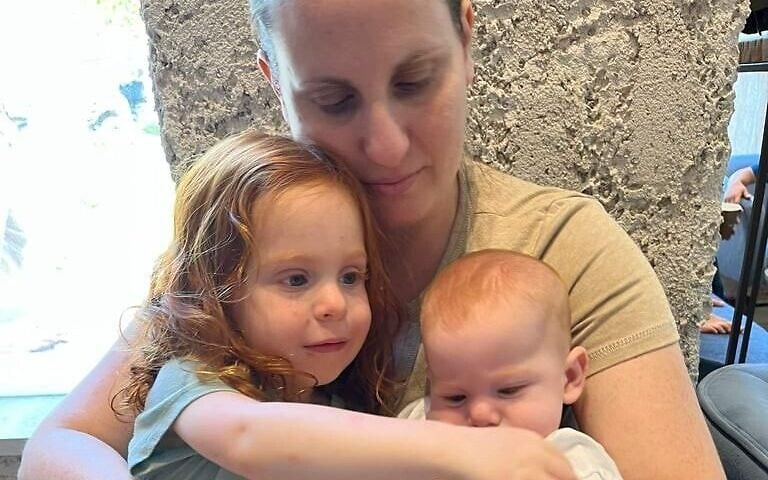By Rabbi Yair Hoffman
As some people are reading this article, there are others who are now preparing for Shabbos themselves: They are making sourdough Challah. They are straightening up around the house, they are shopping, they are cooking. They are setting the table. They are preparing the Shabbos candles. They are doing so well before Shabbos. (picture from Jamie Geller Shabbos Plan)
JUST PUBLISHED!! 357 Pages
Why not buy Rabbi Yair Hoffman’s Newest sefer? Beyond Your Usual Halacha Volume I
There seems to be a fascinating debate between the Rambam and the Tur in regard to preparing for Shabbos oneself. The Rambam writes (Shabbos 30:6):
“Even a very important person who is unaccustomed to buying items at the marketplace or to doing housework is required to perform tasks to prepare by himself for the Sabbath. This is an expression of his own personal honor. The Sages of the former generations [would be involved in such activities]: There was one who would chop wood to cook with, one who would salt meat, one would braid wicks, and one who would kindle the lamps. Others would go out and purchase food and beverages for the Sabbath, even though this was not their ordinary practice. The more one involves oneself in such activities, the more praiseworthy it is.”
The Rambam does not merely write that it is a Mitzvah to do so – he writes that he is required to do it.
On the other hand, the Tur Shulchan Aruch in OC 250 writes as follows: And even if he has several servants for his use, he should try to prepare something for Shabbos’ needs in order to honor it. The language of Rav Yoseph Karo in the Shulchan Aruch is like the Tur – not the Rambam. The difference in wording between the Rambam and the Tur has been pointed out by the Baal HaTanya, the Chofetz Chaim (Biur Halacha Siman 250:1 “Yishtadel”) and the Aruch haShulchan.
WHAT IS THE ARGUMENT?
What is the point of contention between Rambam and the Tur? When studying Torah, it is always a good idea to delineate the parameters of all possible answers.
FULL MITZVAH VERSUS HECHSHER MITZVAH
One possible approach is that the Rambam views “Prepping for Shabbos” as a full-blown Mitzvah of Kavod Shabbos. The Tur might view it as a Hechsher Mitzvah, a pre-step for the Mitzvah of being in a state of delight and honor on Shabbos. For a Hechsher Mitzvah there is no obligation to do each action by oneself, but it is nice to do it. The Tur may be following in the direction of his father the Rosh’s opinion about marriage – that it is not a full Mitzvah bur rather a Hechsher Mitzvah (See Rosh Ksuvos 1:12).
FULL MITZVAH VERSUS HIDDUR MITZVAH
Another possibility is that the Rambam holds that it is a full-blown Mitzvah, while the Tur holds that it is a Hiddur Mitzvah. The Chazon Ish once said that he personally does not look for the most Mehudar Arba Minim, but rather just makes sure that he chooses a kosher set. This is because of the Bitul Torah factor, and Hiddur Mitzvah does not trump Bitul Torah.
MAYBE THE RAMBAM DOESN’T MEAN IT
A third approach is to say that the Rambam may not be exact in his use of terminology and he is now just emphasizing the need to do so, but he doesn’t mean that it is a full blown obligation.
THE BITUL TORAH ELEMENT
A fourth approach could be that the Rambam holds that there is a fundamental and definitional difference in nature between the Mitzvah of Kavod Shabbos and other Mitzvos. In regard to other Mitzvos, if they can be done by others – we do not set aside Torah study in order to fulfill that Mitzvah. Rather, others should do it. However, with Kavod Shabbos the very Mitzvah itself is that a person should do it with his own body. The Rambam therefore understands it as a full-fledged obligation because others cannot perform this Mitzvah for him.
What about the Tur? How would he hold? He would say that one still fulfills the Mitzvah either way, whether he does it or whether his servant or messenger does it. It is just that if he does it himself he gets a bigger Mitzvah, but he still gets a Mitzvah if it is done for him. This is learned out from the concept of Mitzvah bo yoser mib’shlucho (see Kiddushin 41a).
The author can be reached at [email protected]











